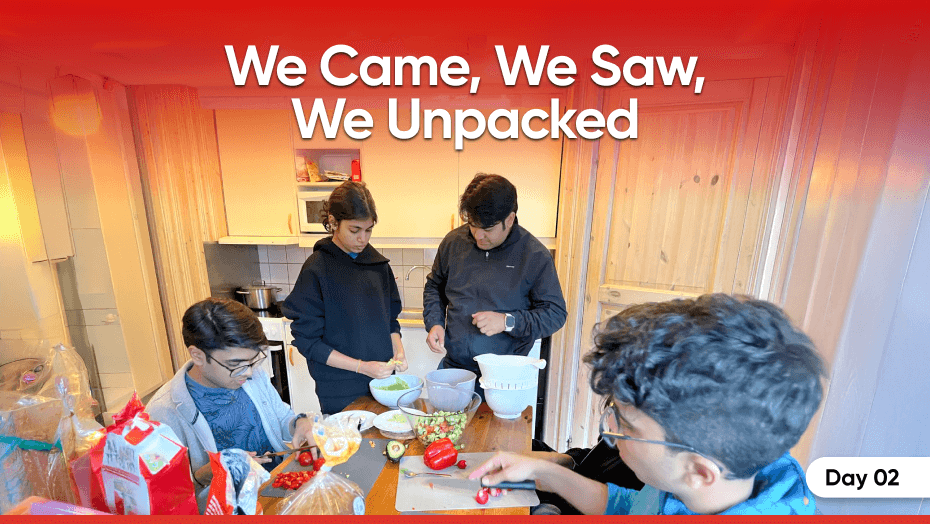Sweden Day 2 – We Came, We Saw, We Unpacked

We touched down at Arlanda Airport early in the morning, greeted by crisp Swedish air and pine-lined views that felt like something out of a travel brochure. After clearing immigration and collecting our (thankfully intact) luggage, we hopped onto our transfer and made our way to the cottages nestled in a serene countryside setting. The drive was scenic, giving us our first real glimpse of Sweden’s beautiful landscapes—endless forests, mirror-like lakes, and charming red-and-white homes that dotted the hillsides.
Once at the cottages, we took time to unpack and explore the peaceful surroundings. After much needed rest, all 11 of us headed out on an impromptu hike through the nearby trails. The walk was quiet, refreshing, and gave us a chance to bond while taking in the fresh air and forest views—plus a few accidental detours thanks to our questionable sense of direction. It was a calm, grounding first day—perfect for adjusting to the new time zone and soaking in the tranquil beauty of Swedish countryside.

